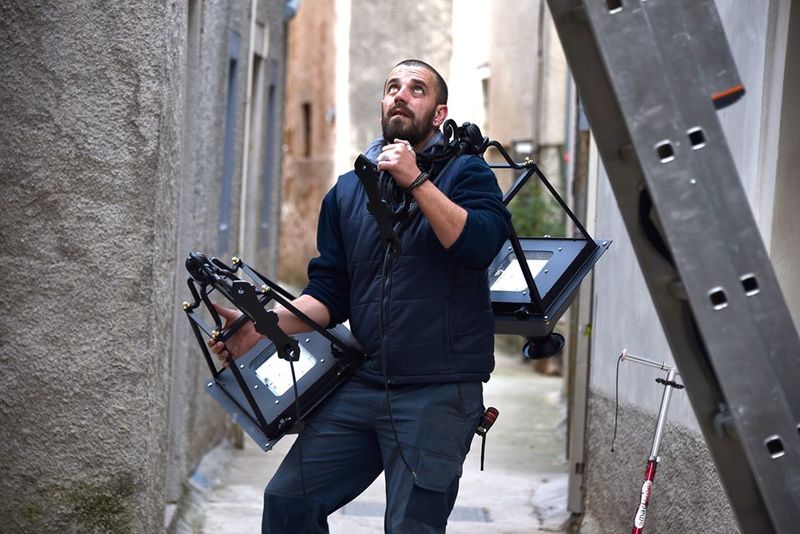Thessaloniki gets ready for its metro launch in November
The underground rapid transit lines have been under construction for almost two decades due to various project delays
 TheMayor.EU logo
TheMayor.EU logo It is estimated that the project will cut the city’s expenses for public street lighting with up to 85%
With a project worth 4,8 million kunas, the City of Cres earns a place among the leaders in energy efficiency and protection of the environment in Croatia. The biggest town on the island by the same name, Cres also serves as its administrative centre. As such, it has set a good example. More than 1 225 luminaries in the city have been replaced with new LED street lamps as a measure against light pollution.
Croatian companies from Požega and Split are carrying out the works on installing the energy-efficient street lighting. Different models of lamps are used depending on the architecture of each location.
The calculations of the two companies show that by switching to the new LED technology, the City will significantly cut its expenses for public lighting. The frugal system of streetlamps will potentially cut the costs to the staggering 85% of the current bill.
This is good news for the mayor of Cres, Kristijan Jurjako, who plans to use the savings for installing new street lamps across the next 10 years. His contentment comes after a year of works on the replacement of the old luminaries. Now that the project has come to an end, Jurjako is welcoming the tangible results, but also the less negative environmental impact that the new LED technology has.

The new LED lamps come in different styles depending on the architecture of each location. Photo by City of Cres
The phenomenon of light pollution hides the night sky from city citizens and causes problems for astronomical observatories. More importantly, it is harmful to various ecosystems and leads to health problems. One of the actions that can show an immediate effect in reducing light pollution is to start using LED lamps with warm-coloured bulbs.
Recognizing the seriousness of the matter, the Croatian government adopted a law on protection against light pollution. It aims to safeguard people and the environment from light pollution caused by light emissions from artificial light sources. Also, it aims to give energy efficiency a boost, that is, to reduce electricity consumption for public lighting.
The law was adopted at the beginning of last year. It stipulates that local government units, or their public lighting operators, must draw up lighting plans and action plans for the construction or reconstruction of external lighting and submit them to the Ministry of Environment and Energy.
Moreover, the law determines the obligation of local authorities to harmonize the existing lighting with the new provisions within 12 years. By completely replacing the public street lighting with new LED lamps, the City of Cres has already fulfilled the requirements of the law.

The underground rapid transit lines have been under construction for almost two decades due to various project delays

Now you can get your wine in Talence by paying directly in Bitcoin

That’s because the state has to spend money on updating the railway infrastructure rather than subsidizing the cost of the popular pass

Rethinking renewable energy sources for the urban landscape

The examples, compiled by Beyond Fossil Fuels, can inform and inspire communities and entrepreneurs that still feel trepidation at the prospect of energy transition

Now you can get your wine in Talence by paying directly in Bitcoin

The 10th European Conference on Sustainable Cities and Towns (ESCT) sets the stage for stronger cooperation between the EU, national and local level to fast track Europe's transition to climate neutrality.

At least, that’s the promise made by the mayor of Paris, Anne Hidalgo

The underground rapid transit lines have been under construction for almost two decades due to various project delays

At least, that’s the promise made by the mayor of Paris, Anne Hidalgo

Hostal de Pinós is located in the geographical centre of the autonomous region

Despite its church-y name, the district has long been known as the hangout spot for the artsy crowds

Urban dwellers across the EU are having a say in making their surroundings friendlier to people and the environment.

Forests in the EU can help green the European construction industry and bolster a continent-wide push for architectural improvements.

Apply by 10 November and do your part for the transformation of European public spaces

An interview with the Mayor of a Polish city that seeks to reinvent itself

An interview with the newly elected ICLEI President and Mayor of Malmö

A conversation with the Mayor of Lisbon about the spirit and dimensions of innovation present in the Portuguese capital














